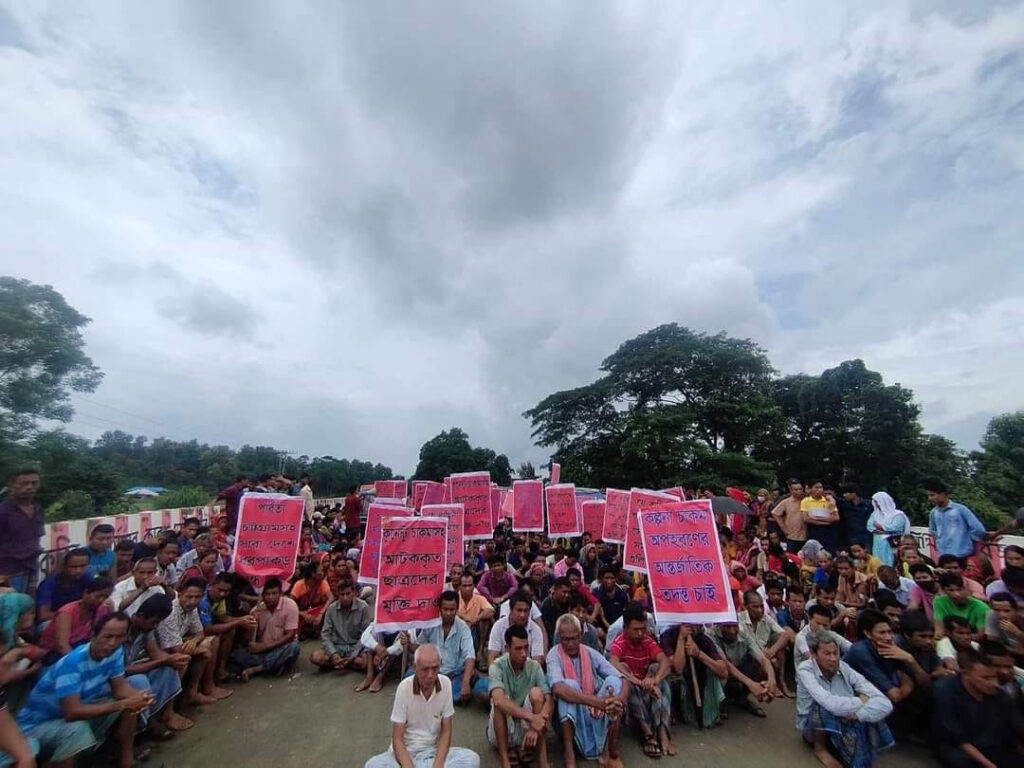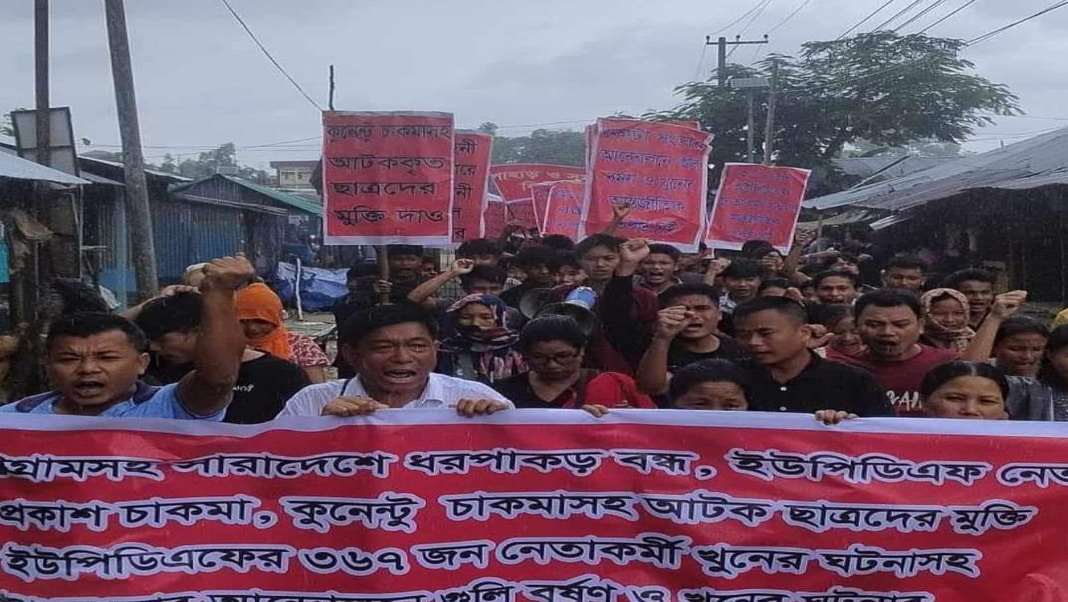Guwahati, Oct 15: Two international bodies on the rights of indigenous people have taken serious note of the large-scale violence and alleged human rights violations in the Chittagong Hill Tracts (CHT) of Bangladesh following ouster of Sheikh Hasina-led Awami League government on August 5, earlier this year, and called for a thorough investigation into the allegations.
The Chairperson of the UN Permanent Forum on Indigenous Issues, Hindou Oumarou Ibrahim, and the Special Rapporteur on the Rights of Indigenous Peoples, José Francisco Cali Tzay, have called on Bangladesh’s interim government, led by Dr. Mohammed Yunus, to allow the United Nations to investigate alleged human rights violations in the Chittagong Hill Tracts (CHT).
They urged the government to cooperate with Indigenous Peoples’ representatives and other relevant stakeholders to strengthen Indigenous institutions and ensure the protection of both their collective and individual rights.
Sheikh Hasina had to flee Bangladesh within minutes of resigning as the Prime Minister on August 5, 22024, after large-scale violence leading to death of atleast 300 people, ending her 15-year tenure. The violence erupted in response to a controversial quota system for government jobs announced by her, which was strongly protested by the youth.
The UN experts specifically highlighted the ongoing violence and discrimination faced by the ‘Jumma’ people, the indigenous ethnic groups in the CHT region. They called for decisive action from the Bangladesh government to address these issues.

Ibrahim and Tzay stressed the importance of launching an impartial investigation into the violence against the Jumma people. They underscored the urgent need to end the culture of impunity that surrounds these attacks, which often go unpunished.
The violence against the Jumma people is part of a larger issue of systemic discrimination, forced evictions, and militarization of the CHT, problems that have persisted for decades. The situation has left Indigenous communities vulnerable, with little protection or support from the authorities.
The UN experts also pointed out the role social media plays in spreading hate speech and misinformation against the Jumma people. They urged social media companies to take responsibility and prevent their platforms from being used to spread disinformation that fuels discrimination and violence.

One of the key demands from the UN was for the Bangladesh government to implement the 1997 CHT Peace Accords, which were designed to secure the rights and safety of the Jumma people. These accords align with both national laws and international standards, including the UN Declaration on the Rights of Indigenous Peoples, specifically Article 7, which ensures Indigenous communities’ right to live in peace and security.
Suhas Chakma, Director of the Rights & Risks Analysis Group (RRAG), commented on the joint statement, viewing it as an important step towards international recognition of the potential human rights abuses and violence being committed against the Jumma people. He emphasized that how Dr. Mohammed Yunus, the Chief Advisor of Bangladesh’s interim government, responds to this crisis could define his legacy, either as a Nobel Laureate for peace or as a leader associated with human rights violations.
Also Read: Gambegre bye-election on Nov 13
Also Watch
Find latest news from every corner of Northeast India at hubnetwork.in, your online source for breaking news, video coverage.
Also, Follow us on-
Twitter-twitter.com/nemediahub
Youtube channel- www.youtube.com/@NortheastMediaHub2020
Instagram- www.instagram.com/ne_media_hub
Download our app from playstore – Northeast Media Hub





